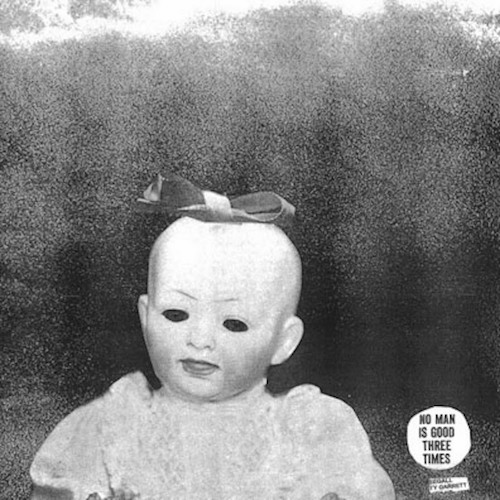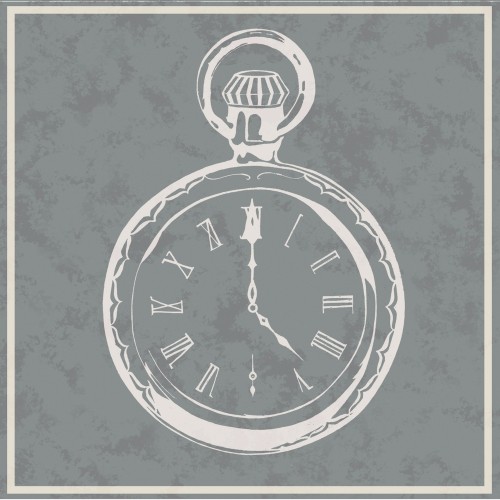 Release Date: May 3, 2011
Release Date: May 3, 2011





Ulver’s Wars of the Roses is just as melodramatic as the title implies but for some reason, it grows on you. The instrumentals are all nondescript ambience that don’t seem to have any significance to one another. Despite having more than 10 musicians contribute to the album and its seven tracks, they all seem extremely bare. However, if I wasn’t required to thoroughly review this album, I would have passed it up in a heartbeat as I assume other listeners might, as they should trust their musical attention spans.
Wars of the Roses starts with what sounds like a promising gritty, electro-bass line and uptempo drum beat instigating the listener with the idea that they are in for an album that tells an epic story. However, what the listener really gets is an album that unsuccessfully attempts to blend unrelated genres of music.
This unfortunate trend of blending too many genres into one abominable monster shows up in every instrumental addition to the album. Ulver’s use of electronic synthesizers churning out sequenced arpeggiotors at blazing speeds and mixed at inaudible levels cause you to check if your headphones are busted and periodically pause the album to see if it’s the song you’re hearing or a siren outside.
This also occurs with what seems to be Ulver’s trademark on Wars of the Roses with the album’s frequent use of impromptu screeches from the orchestral section like sneezes. The percussion is also not spared and stumbles its way around the album in awkward and irregular beats/tempos even for how light the album uses a drum kit or electronic beat.
This description of Ulver’s sound might force one to believe what they create on Wars of the Roses hardly resembles music, which is precisely correct.
The vocals on this album are sparse and repetitive. The “technique” of using short one or two line statements of monotone melodramatic poetry instead of singing is used on every song.
Certain songs do pick up momentum toward the end, with all the instruments fighting over sonic space instead of working together, and when this happens, the vocalist does not capture the “epic” or “orchestral” energy and aesthetic the band is shooting for.
The result is something that sadly sounds like something that would be appreciated by overly dramatic teenagers obsessed with 30 Seconds to Mars, who still think Cradle of Filth is the most brutal and impressive metal band on Earth.
The mix might not taste or look good, but it is indeed very interesting. Simply taking a listen and thinking “what kind of person creates this sort of music?” is intriguing, because I can’t say an album has actually made me think about anything besides “what instruments are they using, are they trying anything new, what studio effects…” in a while. I’m wondering why this was scheduled for a summer release as it would serve much better as a winter album.
That doesn’t change the fact that if you thought The XX was beautiful for their simplistic perfection, you’ll find Wars of the Roses on the opposite side of the minimalist spectrum, being so over the top with its bleakness, over production, and lacking in real substance at parts. “Providence” is a prime example that is almost identical to the other songs on the album. The first three minutes are a trade-off between a male and female singer exchanging unrealistic and un-relatable dark and scary lyrics that fall flat in their efforts, whatever they were.
Upon a Google search of these lyrics, I discovered that Ulver is a fan of using poetry from various sources for lyrical inspiration, like such greats as William Blake. If they did something like this on Wars of the Roses, their intentions failed because the “poetry” didn’t come through at all. This might just be a trend with more modern music, but minimalism shouldn’t have to make up for the lack of songwriting. If you actually listen to the lyrics of this album, you have to wonder who the target audience is.
This whole idea climaxes with the last track, “Stone Angels,” which is 15 minutes of ambient, new age keyboard sounds that you might hear in a yoga studio with, yet again, another spoken word poem over it. It could be said that the singer is not even singing and just talking throughout, not just this song, but the entire album. Sometimes he’s talking with a little more “oomph” than he would in normal conversation; however, this effect does not set the mood; it bores the listener with its repetition and is overused throughout the album.
You can’t judge books by their covers, but if Wars of the Roses sounds like something you normally wouldn’t be into, you’re 100 percent correct. Why was this album made? Was it absolutely necessary to produce another ambient album with marginal differences in each track? What does this add to the music scene?
In Ulver’s defense, they were going for a minimalist approach, and under the minimalist lens, they did “okay,” but that’s like saying Ulver won the bronze medal in a 50-meter dash for snails. Even if they were a good minimalist band, they’re still hardly scratching the surface. With a different vocalist and a little more direction, Ulver would be a much better band.
Ulver Wars of the Roses Tracklisting:
- “February MMX”
- “Norwegian Gothic”
- “Providence”
- “September IV”
- “England”
- “Island”
- “Stone Angels”


